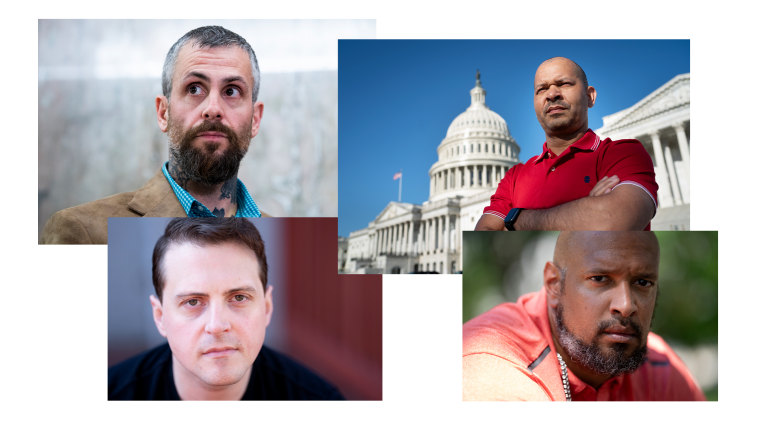After months of delays and uncertainty, the House's newly formed Select Committee to Investigate the January 6th Attack on the U.S. Capitol is finally ready to begin its work. Rep. Bennie Thompson, D-Miss. gaveled the committee into session Tuesday morning, marking the beginning of what's surely going to be a marathon of fact-finding, rather than a sprint.
There's a lot of ground for the committee to cover over the coming months, and it could have done much worse in selecting its opening group of witnesses. Sitting across from the nine members Tuesday — seven Democrats and two Republicans — were four law enforcement officers: Harry Dunn and Aquilino Gonell, who serve with the U.S. Capitol Police, and Michael Fanone and Daniel Hodges, who are officers with the Washington, D.C., Metropolitan Police Department.

It's a lineup that may wind up being one of the few no-brainers for the committee during this investigation. We're starting off with a group that, like the committee members, experienced the insurrection firsthand. They're nonpartisan, a fact that will be surely highlighted over and over again as the day's questioning proceeds. And as police officers, they're also a group that most Republicans will struggle to attack directly as liars.
Not to say none of them will try — it's really their only option right now. House Minority Leader Kevin McCarthy, R-Calif, made sure of that when he worked to tank a bipartisan commission. (McCarthy was presumably worried that the commission would make Republicans look bad, a reasonable fear when you consider former President Donald Trump's role in marshaling his supporters against the Electoral Vote counting taking place in the Capitol.) Instead, McCarthy has decided it's better to have his caucus on the outside throwing stones at any Republicans who dare participate than to try to shape the investigation's outcome.
I didn't go into Tuesday expecting to learn much new information. All four participants have already given public interviews about the verbal and physical abuse they suffered during the attack. That abuse has been corroborated by video. But there is power in hearing and seeing it all again.
And if I can be cynical for a second, the Democrats are going to absolutely milk the trauma those officers suffered for every political advantage they can. Even before the hearing begins, that already public video is giving Democrats plenty of runway to hype these witnesses as real American heroes. And they are — but the Democrats are being a little extra. A committee member, Rep. Jamie Raskin, D-Md., told The Washington Post that police officers act as the "moral center of gravity of the whole investigation." A tweet Monday morning from Rep. Eric Swalwell, D-Calif., likewise gave a solid preview of the tone we can expect:
But pure partisan politics aside, by revisiting their stories, the committee is laying important groundwork for future hearings. While some Republicans in Congress have taken to downplaying the violence, this was not a group of tourists strolling through the halls. Officer Fanone in particular has spoken out about the injuries he sustained at the hands of the angry mob.
This committee is a chance for Congress to show that it can find actual solutions to domestic threats.
This committee is a chance for Congress to show that it can find actual solutions to domestic threats. I'm hoping a smooth day of questioning, free from the theatrics that certain Republican members would have injected had they participated, will prove that this committee can handle its weighty task.
But there's no guarantee that this all results in a complete accounting of who was behind the violence, what warning signs were on display, who had the power to stop it and, most important, how to prevent it from happening again; we have no idea who the next witnesses will be, or even the full scope of the investigation.
MSNBC columnists Joyce Vance and Barbara McQuade did the committee a huge favor Monday. Along with Just Security co-editor-in-chief Ryan Goodman, they've produced a list of potential witnesses and questions that need to be answered by the time the committee wraps its work. I'm hoping the three got some much-deserved thanks and potentially even a nice fruit basket from the committee's staff. Even better, I hope lawmakers read their piece.
Tuesday's hearing is the easy part for the committee, complete with a layup set of witnesses. What happens afterward, during all of the other hearings down the line, will determine whether this committee's proceedings are a success. Alternatively, the committee could transform into a partisan mirror version of the Benghazi Committee, focused more on politics than substance. That would be, to use a phrase Tuesday's witnesses can relate to, a dereliction of duty.
